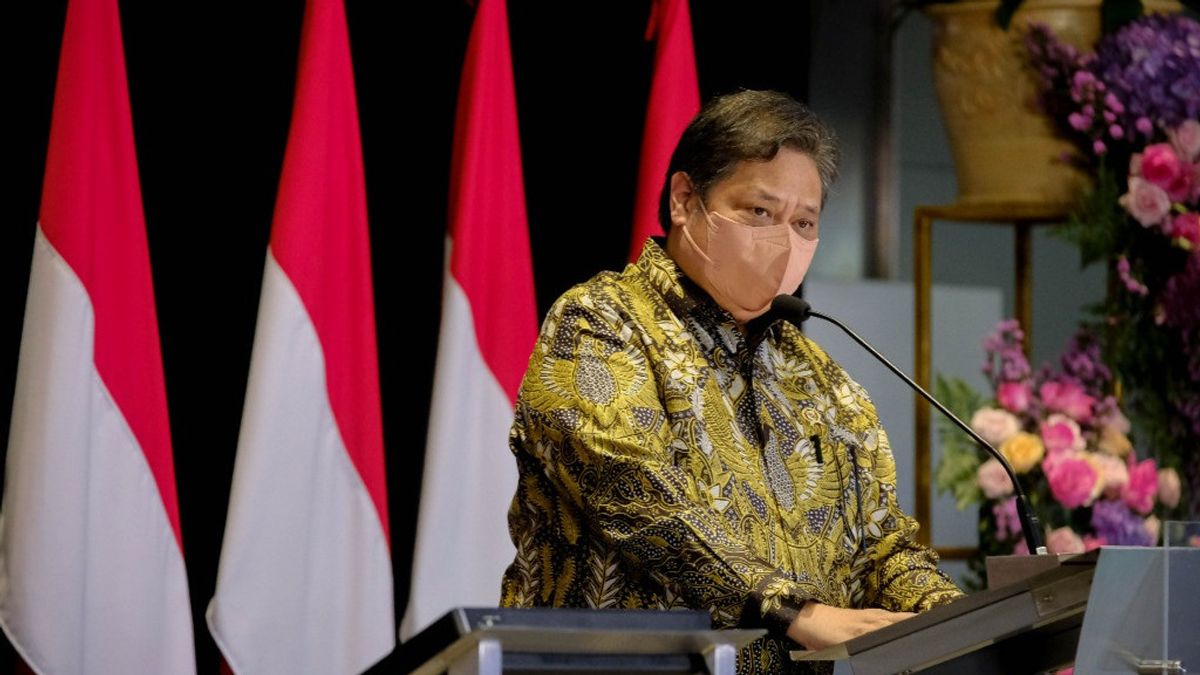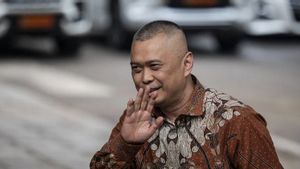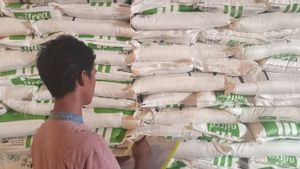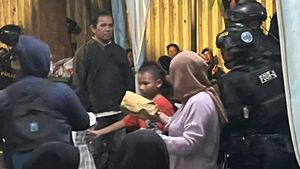JAKARTA - Coordinating Minister for the Economy Airlangga Hartarto hopes that the University of Indonesia (UI) will be able to produce health professionals who are familiar with digital technology. Digital technology is an important instrument for making decisions in the world of health.
Coordinating Minister Airlangga referred to the use of digital technology that is used to determine government policies to deal with the COVID-19 pandemic in Indonesia.
One of the keys to the successful handling of the pandemic in Indonesia is the implementation and integration of data from various digital applications. Starting from PCare, PeduliLindung, SMILE, and SMDV.
The digital application records test results, medical records, vaccination status, to the logistics supply chain for handling the pandemic.
"The use of digital technology really helps the central and regional governments in monitoring and making decisions based on real data that is updated at any time," said Airlangga when delivering the Global Health Public Lecture, Faculty of Public Health, University of Indonesia, in a statement, Saturday, April 16.
The chairman of the Committee for Handling COVID-19 and National Economic Recovery (KPCPEN) added that apart from the use of digital technology, the successful handling of the pandemic is the fast response and active role of all parties from various sectors.
The government's quick response in handling the pandemic is by stipulating Presidential Regulation Number 82 of 2020 concerning the Covid-19 Handling Committee and National Economic Recovery (KPCPEN).
This Presidential Regulation allows the government to control health and economic aspects as well as facilitate policy adaptation in the midst of a pandemic. Other quick responses in the health aspect are restrictions on mobility, campaigns for wearing masks, washing hands, maintaining distance, as well as providing treatment and vaccinations.
Airlangga added, the government has also carried out synergies and collaborations with all parties from various sectors. Ranging from local governments to international institutions.
Coordination between the central and regional governments is routinely carried out every week to become a catalyst in accelerating policy making related to handling the pandemic.
Global collaboration is also carried out by the government with various international institutions such as WHO, IFRC, UNDP, and UNICEF assisting Indonesia in the preparation of technical guidelines and technical assistance for the implementation of vaccine distribution quickly and on target.
The General Chair of the Golkar Party said that in addition to global collaboration with international institutions, the government is also synergizing with several other countries such as Australia, Japan, the United States, Europe, and the United Arab Emirates. This is done in order to obtain logistics needs such as vaccines, oxygenators, and medicines quickly so that they are able to meet domestic needs.
Airlangga emphasized that the government also encourages consideration of the need for preventive measures through the G20 Indonesia Presidency. With the assistance of the World Bank and WHO, the G20 Forum established the Global Health Fund, which is a collaborative fundraising effort to build the resilience of the global health system.
"I hope that the G20 Forum can also become a facilitator for coordination of prevention and response to various pandemic issues," said Coordinating Minister Airlangga.
The English, Chinese, Japanese, Arabic, and French versions are automatically generated by the AI. So there may still be inaccuracies in translating, please always see Indonesian as our main language. (system supported by DigitalSiber.id)










